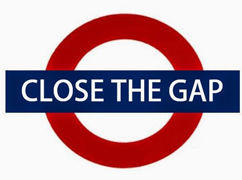What is a gap analysis? A gap analysis determines the degree to which your laboratory or organization meets a certain set of requirements. You can think of it as a document review. Why is a gap analysis important or helpful? When establishing the documents that describe a quality management system, you want to ensure that the policies and procedures in those documents meet all of the requirements for accreditation to the ISO/IEC 17025 standards or the ISO/IEC 17020 standards. If your agency is preparing for accreditation, you want to know where you stand. Are there any gaps? Maybe your agency is transitioning to a different set of standards, or maybe your agency is already accredited and you plan to add new disciplines to existing forensic services. In either case, it’s a good idea to perform a gap analysis.
In providing this service, RS&A would thoroughly review all of the documents provided by your organization to determine the degree of conformance to the requirements of either the 17020 or 17025 standards. Documents would also be checked for compliance with any supplemental requirements of your chosen accrediting body (ASCLD/LAB, ANAB, A2LA, etc). You will be provided with a report that summarizes any gaps between existing documentation and the chosen requirements and will include advice on actions that can be taken to close any gaps. Keep in mind that a gap analysis is a review of documents. It does not give an indication that the system has been implemented, or that it is effective (refer to internal audit services). We find that these two services are often misinterpreted, which is understandable because, they are very similar.
A good gap analysis will give your laboratory an objective indicator as to the accuracy of the documents in your quality management system. A good gap analysis can prevent wasted resources. No agency can afford to spend time and energy implementing policies and procedures only to realize later that the policies and procedures didn’t address all of the requirements.
